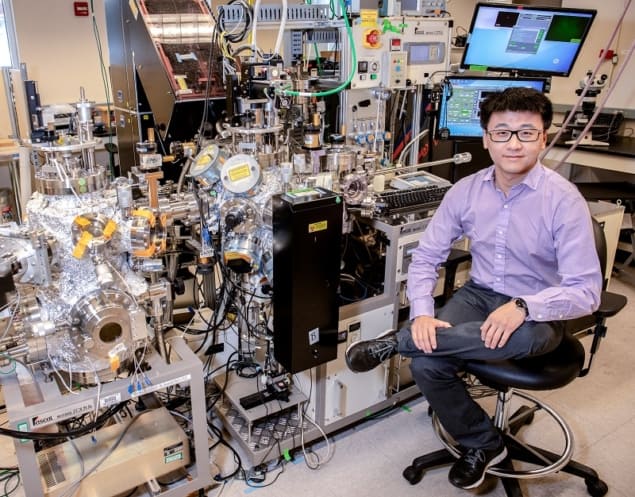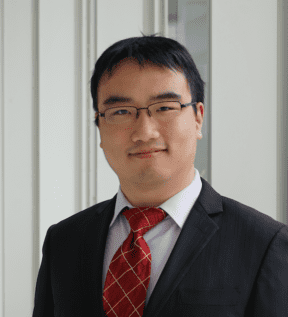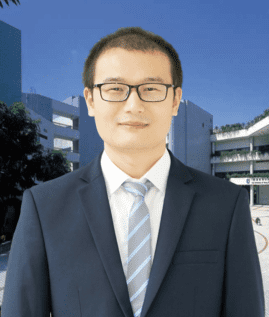City University of Hong Kong is seeking the ‘brightest and best’ early-career physicists with a breadth of international research experience

Cool heads and clear thinking are mandatory in the competitive world of front-line research as academic leaders strive for that winning – and sustainable – combination of visibility, recognition and impact that will set their physics programmes apart from the rest of the field. The calculus is simple enough: a virtuous circle in which targeted research funding attracts the brightest and best scientific talent, while the brightest and best, in their turn, go on to secure more (and bigger) research grants. Delivering that sort of win-win doesn’t come easy, though, and requires clarity of vision, clarity of planning and clarity of execution – and especially so for a fast-growing research programme like the City University of Hong Kong Department of Physics.
Although it only came into being in 2017, after the university chose to create distinct disciplinary specialisms from the former combined physics and materials science programme, the CityU Department of Physics demonstrates a unity of purpose and collective endeavour that suggest its ambitious goal – to create one of the leading centres of research excellence for physics in the Asia-Pacific region – is a realistic proposition over the medium term.
The department has already taken small, yet significant, steps towards that objective. In the latest Research Assessment Exercise, commissioned by the University Grants Council of Hong Kong, the CityU physics programme fared well, with an independent international panel rating 38% of its research output as four-star (i.e. “world-leading”). Even so, the growth trajectory is a steep one, with a target of around 30 physics faculty members on board by 2027 (versus a current staff cohort of 23). It’s also the intention that postgraduate numbers, currently at 79, will scale significantly over the same timeframe to around 150 PhD students (and the number of postdoctoral researchers and research assistants, currently 30, is forecast to triple by 2027).
While fast-track expansion brings its own unique hiring challenges – amplified by the ongoing uncertainties associated with Coronavirus pandemic – CityU’s Global Scholar Recruitment Campaign is geared to maximize the chances of success. Underpinning the CityU offer is generous funding – at national, university and department level – to enable incoming faculty to quickly establish new research groups, laboratories and regional collaborations. Within this wider institutional recruitment drive, CityU Department of Physics is currently seeking exceptional scholars at all levels – assistant professors, associate professors, professors and chair professors – and from all regions – whether that’s local institutions in Hong Kong, further afield in mainland China, or leading physics laboratories in Europe and the US.
International perspective
Among the recent arrivals at CityU is Danfeng “Denver” Li, who joined the faculty at the end of last year as an assistant professor of physics pursuing various research themes at the interface between condensed-matter physics and materials science. Specific areas of interest include atomic-scale fabrication of oxide heterostructures and nanomembranes, kinetic-based synthesis of unconventional quantum materials, low-dimensional superconductivity and oxide interfaces for emergent states.
Before taking up his CityU post, Denver Li spent much of the previous decade broadening his research experience in Europe and the US. In 2016, he completed his PhD at the University of Geneva, Switzerland, followed by almost four years as a postdoctoral researcher at Stanford University in California. It was at Stanford, in 2019, where Denver Li and his postdoctoral supervisor, Harold Hwang, led the experimental team that discovered the first nickelate superconductor – a breakthrough that initiated new lines of enquiry on a class of unconventional superconductors that had been a target of materials scientists for more than three decades.
Right now, as he establishes his own research team and laboratory at CityU, Denver Li reckons those formative years spent working across diverse scientific cultures – he’d previously completed his undergraduate training at Zhejiang University in mainland China and a Master’s degree at The Hong Kong Polytechnic University – have equipped him with a unique perspective that informs and shapes his approach to team leadership, student mentoring and research collaboration.
“What I noticed in Europe is that, for the most part, scientific research is still curiosity-driven,” he explains. “For young scientists, in particular, the emphasis is on thinking, discussing and solving interesting problems.” Yet Denver Li also thrived in the high-pressure US research environment, where he relished the competition to deliver new breakthroughs and to communicate and publish results at pace. “In modern science,” he adds, “I guess the optimum approach is to find a balance of these two models – delivering research impact while ensuring that scientists are still able to explore the questions that interest them. That’s certainly one of our big selling points here at CityU.”
At an individual level, adaptability is one of the key attributes that Denver Li is looking for in would-be recruits to his research team – and doubly so given the restrictions that all scientists are facing as a result of the pandemic. The shift from real-world conferences to virtual meetings is a case in point. “Building relationships in a Covid world is hard,” he explains, “so it’s more important than ever for young scientists to be proactive regarding the communication and promotion of their results.” These days, for example, Denver Li takes every opportunity that he can to speak at online seminars and workshops, allowing his peers and potential collaborators to “put a face” to the research he’s doing. “It’s not the same as meeting colleagues over dinner at a real conference,” he concludes, “but it’s the best we’ve got right now.”
The collective conversation
Adaptability is also a priority for Xiao Li, another early-career scientist with a decade of US research experience on his CV when he joined the CityU physics faculty as an assistant professor in January 2019. Xiao Li is mainly interested in novel states of matter that arise due to the interplay between topology, disorder and electron–electron interactions. His research activities span various aspects of non-equilibrium systems (such as many-body localization and quantum information scrambling) as well as the application of machine-learning techniques in condensed-matter physics.

Prior to CityU, Xiao Li’s career included a four-year contract as a postdoctoral research associate in the Condensed Matter Theory Center at University of Maryland (UMD), College Park, a posting that followed completion of his PhD at the University of Texas at Austin in 2014 (and prior to that an undergraduate degree at Peking University). During his time in the US, Xiao Li was struck by the opportunities available to young scientists to deepen their understanding of how science works – and, in his case, to learn from leading physicists working across a range of subdisciplines.
“They have big and diverse condensed matter groups in Austin and College Park,” he notes, “so there are always a lot of seminars and workshops in the schedule. Just listening to other scientists explain their research means you can gain insights about their methods or pick up ideas on how to present complex scientific ideas with clarity and flair.”
Another defining experience, says Xiao Li, is the collaborative and open working environment that he encountered as a UMD postdoc – a model that he and his faculty colleagues are now seeking to replicate at CityU. “One aspect I treasure from my time at College Park is that all of the postdocs in the Condensed Matter Theory Center make an effort to have lunch together at least once a week,” he explains. “It’s so valuable to talk informally with colleagues in this way – being able to discuss a research problem you’re stuck with, for example, and get fresh insights from graduate students working on often-unrelated research projects.”
For now, Xiao Li continues to build up his team and is particularly keen to engage prospective PhD students and postdocs who – like him – are eager to broaden their international experience and networks. “We are a growing physics department,” he adds, “and we have a well-articulated talent strategy that sees us bringing together a cohort of ambitious young scientists under the guidance of experienced, internationally established research leaders. It’s a synergy that works well.”
Big science, big opportunities
In January of this year, that emerging synergy saw Junzhang Ma, a rising star in experimental condensed-matter physics, join the CityU physics faculty as an assistant professor. Ma’s appointment followed a three-year joint postdoctoral fellowship at the Swiss Light Source (SLS), Paul Scherrer Institut and École Polytechnique Fédérale de Lausanne in Switzerland, prior to which he completed his PhD at the Institute of Physics, Chinese Academy of Sciences (IOP CAS) in Beijing.

“Most of my scientific work in Switzerland was carried out at the SLS, a shared research facility with a very different working model to the typical university department,” Ma explains. During his time at SLS, Ma also learnt a lot about the enabling technologies and infrastructure of a big-science facility, supporting users from around the world with routine maintenance and problem-solving on the synchrotron beam lines and experimental stations. “I became a lot more independent as a researcher,” he adds. “Meanwhile, collaborating with an international cohort of scientists was great preparation for recruiting and leading my own research group here at CityU.”
Ma chose CityU as his next career step based on the offer of generous start-up funding, dedicated laboratory space and the freedom to set his own research agenda. That agenda spans experimental studies of the electronic structure of topological materials, superconductors, low-dimensional materials and correlated materials using synchrotron radiation (and a specific technique called angle-resolved photoemission spectroscopy). Still only in his early 30s, Ma has already contributed to several high-profile research breakthroughs, including the discoveries of the Weyl semimetal, three-component Fermion, hourglass Fermion and the fluctuated magnetic Weyl Fermion.
CityU physics: where regional connections underpin global research ambitions
Another factor in Ma’s choice of CityU is the university’s close engagement with the Greater Bay Area initiative. This ambitious regional investment programme aims to transform the Pearl River Delta (encompassing Hong Kong, Macau, Shenzhen, Dongguan and nearby cities in Guangdong) into a science and technology powerhouse that, its backers hope, will ultimately rival Silicon Valley in California. Among a raft of big-science facilities under construction in the region, Ma is particularly excited about a next-generation synchrotron light source that’s scheduled to come online within the next decade.
“For now,” Ma concludes, “the priority is to build up my research group and cooperation here at CityU – likely recruiting two PhD students a year for the foreseeable. Longer term, I aim to establish collaborations with the advanced synchrotron source and other physics laboratories in the Greater Bay Area, as well as further afield in mainland China and around the world.”
CityU Global Scholar Recruitment Campaign
CityU Department of Physics is currently seeking applications from outstanding scholars for several open faculty positions. Core areas of interest include (but are not limited to): theoretical and computational physics; spectroscopy and imaging; low-dimensional systems and quantum materials; soft matter and biophysics; and atomic, molecular and optical physics.
The department also invites applications and expressions of interest for its PhD programme. Candidates able to demonstrate outstanding performance versus research capability, communication and interpersonal skills, and leadership potential are encouraged to apply through the Hong Kong PhD Fellowship Scheme.





